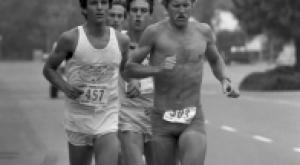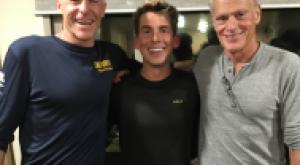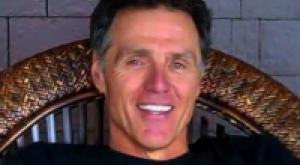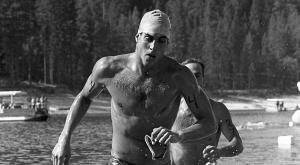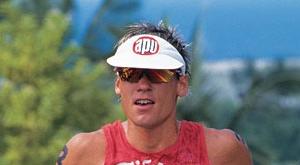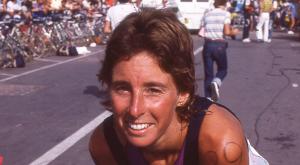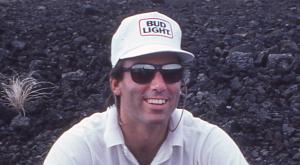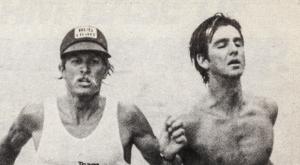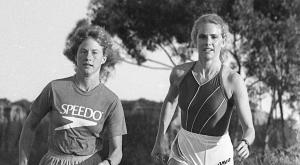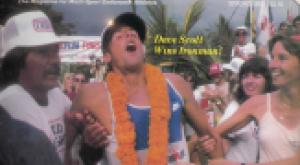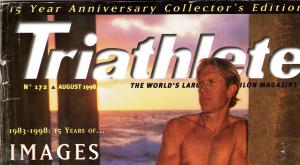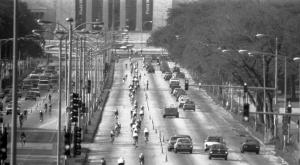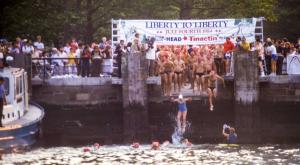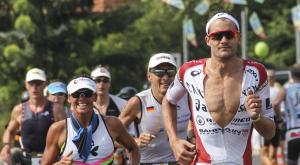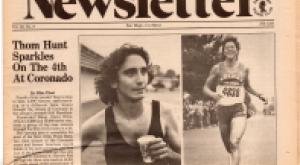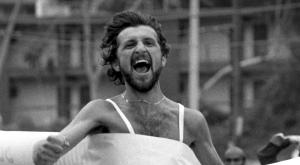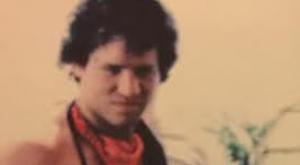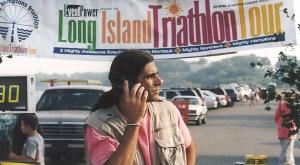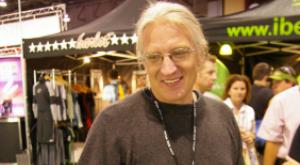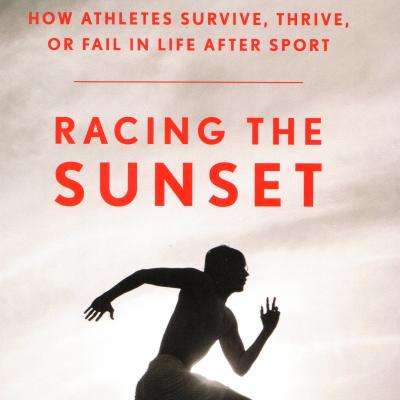
Tri-History Book Review
Racing the Sunset by Scott Tinley
Reviewed by Dick Lansing
Imagine spending most of the first 30 or so years of your life preparing for, and then working in, your dream job. Imagine being among the best in the world at what you do for 10 or 20 years through high school, college and the professional ranks, earning more money than you ever dreamed of earning, being a true star in your field. Imagine having your life planned, travel arranged, people managing your non-work activities for you.
Now imagine stopping on your 31st birthday, never again to work in that field. Suddenly, you’re on your own. There is no schedule, maybe no direction. How do you handle this? How do you make everyday decisions you never previously worried or even thought about? In addition, what are you going to do? What will be your job? What are the effects on you mentally, socially, economically?
This is the issue that Scott Tinley writes about in Racing the Sunset, except his focus is on athletes. Like it or not, professional athletes live in a different world from the rest of us. They get paid for playing a sport. Many of them are treated differently in school and by society. Many of them make a lot of money. And then it stops! The causes vary, sometimes it’s planned, but not necessarily what the athlete wants as they become older, slower, unable to keep up with the younger competitors for first place or their position on the team. Sometimes it comes quickly due to injury. But, it happens to all professional athletes. Tinley summarizes this issue nicely: “Making it to the top ranks of a sport is not the hardest thing you will ever do. Stepping down and letting go is.”
In Racing the Sunset Tinley provides an in-depth look at why athletes retire, the problems they encounter and how society looks upon their past heroes. Last year a running back may have scored the winning touchdown in the championship game, today he’s not playing football and may be unprepared for doing. . . well, doing whatever he is doing which is not playing football.
Tinley grew up in Santa Fe Springs, Calif., where he ran track in high school. Once triathlon began to rise in popularity in the 1980’s, he became one of faces of the sport, a member of the historic “Big Four,” winning more than 100 races and twice winning the Ironman World Championships in Kona. He was one of the first triathletes to make a living from the sport.
When retirement hit, it was a sobering experience. It took him years to figure out what he wanted to do with the rest of his life. He eventually returned to school and now has three Masters Degrees and a Ph.D. in Cultural Studies. He currently teaches in the Department of Exercise and Nutritional Sciences at San Diego State University and in the Department of Kinesiology at California State University San Marcos. He has authored numerous papers and books.
Racing the Sunset is in part autobiographical. Tinley reveals much about his own life, including his professional triathlon career, and the struggles he faced when that career ended. Once retired, it took Tinley years to relocate his energy and determine his direction, both personal and vocational.
But this is far from a personal story.
The book is primarily an in-depth discussion of the issues that athletes go through during the retirement process. It is well researched, with a bibliography 40 pages long. Tinley interviewed numerous athletes from a variety of sports, including basketball great Jerry West, cyclist Greg LeMond, former NFL wide receiver Don Maynard, and the American miler Steve Scott. The author incorporates these retired athlete’s comments and stories throughout the book. The retired Swedish tennis great Bjorn Borg puts the retirement issue in perspective for many ex-athletes: “It wasn’t until I stopped playing tennis that I realized that in real life problems exist.”
Tinley’s views are often irreverent, but they clearly illustrate the situation in which many top performers find themselves as their careers wane. As he describes: “In one of the last years I was competing seriously, I found myself alone at a hotel the night after the race. . . ‘(the waitress) asked me how many in my party . . . ‘One’ I told her, ‘I’m here by myself because I’m a loner, no friends, washed up, over the hill, barely made the top five today’.”
How many of us would be out celebrating if we made the top five overall in a triathlon? How about the top five in our age group?
Tinley discusses the sport of triathlon and his long participation in it. He eloquently captures moments that all triathletes will understand. Talking about Ironman World Championship in Kona, he says, “Up the hill from town, the Queen K is some kind of endurance sport DMZ; a dark territory requiring credentials to enter and a lot more to leave.”
Tinley offers solutions for athletes wanting to make a smooth, or at least a somewhat smooth, transition from the only life they had known to the lives the rest of us know. One suggestion he offers is clearly taken from his own experience: that athletes incorporate “a wider variety of educational opportunities in preparation for life after sport; areas well beyond financial advising and into sociocultural pedagogy.”
He also recommends that “…we might question omnipotent importance of winning and success ideology as applied to sport.” This is a bold suggestion that would change the entire culture of professional sports and how societies view them. Perhaps, the topic of another book.
Dick Lansing has completed more than 200 multisport events since his first race in 1983, including nine Ironman events and three Ironman World Championship races in Kona. He was a member of Team USA for the Aquathlon World Championships in 2015 and is a member of the USA Triathlon Foundation Board of Trustees.


